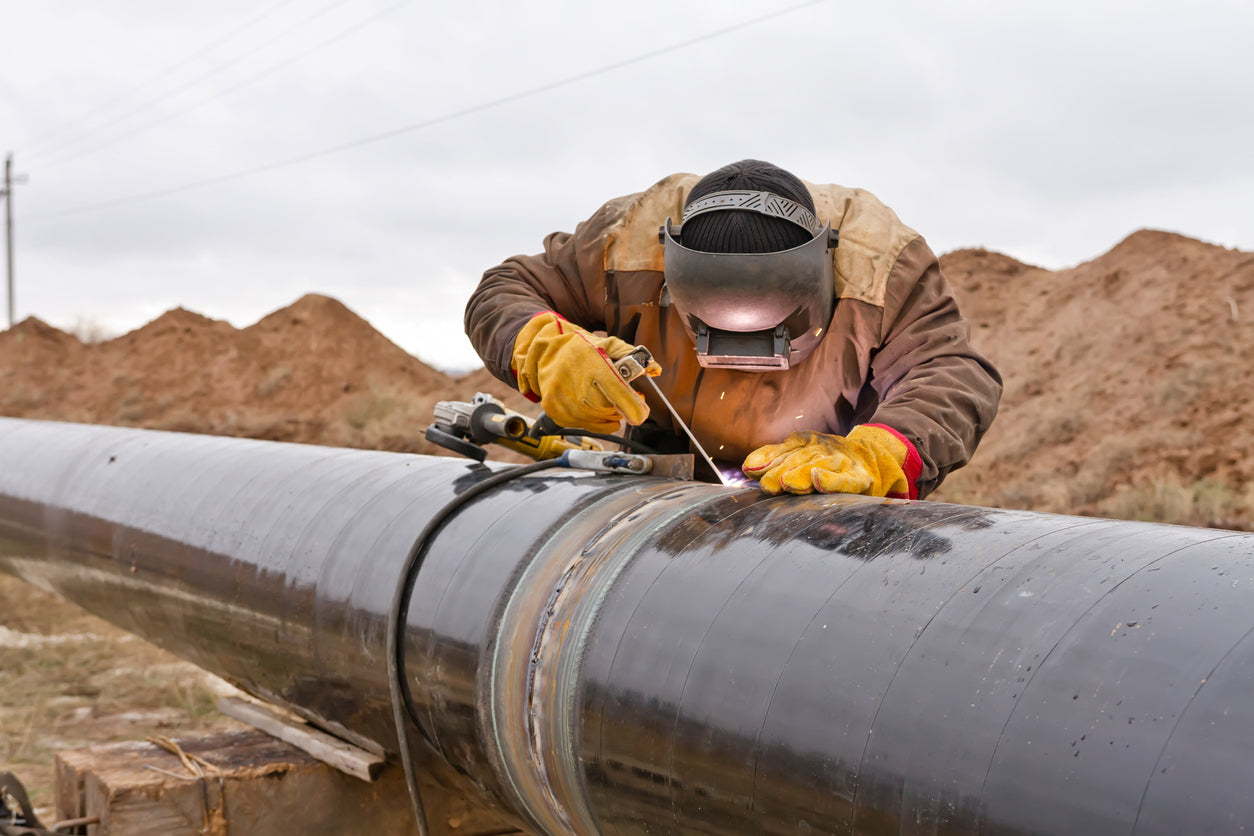Introduction
In the realm of hand protection, not all gloves are created equal. Welders, in particular, require specialized gloves to shield their hands from the unique hazards of their trade. This guide will dissect the differences between welders' gloves and other types of gloves, emphasizing the distinct features that make welders' gloves a crucial tool in the welding profession.
Welders Gloves: A Class Apart
Forged in Flames: The Welders' Realm
Welding introduces specific challenges, primarily centered around extreme heat, sparks, and molten metal. We'll explore how welders' gloves are tailored to withstand these harsh conditions, offering unparalleled protection against thermal hazards.
Materials Matter: Heat-Resistant Fabrics
Welders' gloves often incorporate materials like leather, specifically treated to enhance heat resistance. We'll delve into the types of leather used, such as cowhide and goatskin, and how these materials provide a crucial thermal barrier.
Extended Cuff and Gauntlet Design
Welders often work in close proximity to sparks and splatter. We'll discuss the extended cuff and gauntlet design of welders' gloves, ensuring full coverage and protection for the wrists and forearms.
Welders Gloves vs. General Purpose Gloves
Versatility vs. Specialization
General-purpose gloves are designed for versatility, catering to a range of tasks. We'll contrast this with the specialized nature of welders' gloves, honed to address the specific hazards encountered during welding.
Heat Resistance Distinction
While some general-purpose gloves offer heat resistance, welders' gloves take it to another level. We'll explore the specific heat-resistant features that set welders' gloves apart, ensuring protection in high-temperature environments.
Durability for the Long Haul
The durability demands on welders' gloves surpass those of general-purpose gloves. We'll discuss reinforced stitching, Kevlar reinforcements, and other durability-enhancing features that make welders' gloves resilient to the rigors of welding.
Specialized Features of Welders' Gloves
Spatter Resistance and Impact Protection
Welders often face molten metal spatter and potential impacts. We'll highlight how welders' gloves incorporate features like spatter resistance coatings and additional padding for impact protection.
Dexterity in the Midst of Protection
Despite the need for robust protection, welders require dexterity. We'll discuss how welders' gloves are engineered to balance protection and dexterity, allowing precise control over welding tools.
Choosing the Right Glove for the Job
Task-Centric Glove Selection
Selecting the right glove is paramount. We'll guide you through the considerations when choosing between welders' gloves and general-purpose gloves, ensuring that your hand protection aligns with the demands of the task at hand.
Conclusion
In the dance of sparks and flames, welders' gloves emerge as the unsung heroes, offering a specialized shield against the hazards of welding. Understanding the distinctions between welders' gloves and other gloves ensures that welders are equipped with the right armor for their craft.
Frequently Asked Questions (FAQs)
-
Can I use general-purpose gloves for welding?
While general-purpose gloves may offer some protection, they lack the specialized features required for welding. Welders' gloves are designed specifically to withstand the extreme conditions of welding.
-
What materials are commonly used in welders' gloves?
Welders' gloves often feature heat-resistant leather, such as cowhide or goatskin. The leather is usually treated to enhance its heat resistance.
-
Are welders' gloves suitable for other tasks?
Welders' gloves are specifically designed for welding hazards, and using them for other tasks may not provide the necessary protection. It's crucial to choose gloves based on the specific requirements of the job.
-
Do welders' gloves come in different sizes?
Yes, welders' gloves are available in various sizes to ensure a proper fit. Choosing the right size is essential for comfort and optimal protection.
-
Can general-purpose gloves provide adequate heat resistance for light welding tasks?
For light welding tasks, some general-purpose gloves with heat-resistant features may offer sufficient protection. However, for more intensive welding work, it's advisable to use dedicated welders' gloves for enhanced safety.

